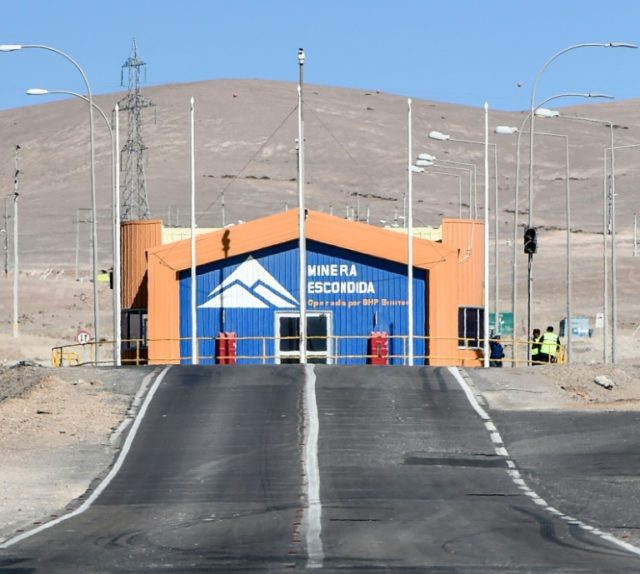Santiago (AFP) – Chilean miners at the world’s biggest copper mine, Escondida, signed an agreement on Friday with Anglo-Australian owners BHP to avoid a strike announced two weeks ago when unions rejected as insufficient a proposed salary hike.
BHP said “a new collective contract” had been agreed with the No.1 union, which represents 2,500 miners, preventing a potentially crippling shutdown at the mine, which produces five percent of the world’s copper.
Neither the union nor BHP divulged the terms of the new deal but local media reported miners would get a 2.8 percent salary increase and a bonus of almost $28,000 per worker for ending negotiations.
The union had called for a five percent salary increase and bonus of about $34,000 while BHP’s counter offer was 15 million Chilean pesos ($23,000) per worker.
Chilean miners earn between $2,500-3,000 a month — a comfortable sum in a country where the minimum wage is $800. But the workers argue they deserve such a premium because of their harsh working conditions.
Negotiations had dragged on for weeks, increasing fears that miners would go on strike for the second year in a row.
Last year, Escondida miners spent 44 days on industrial action, provoking a 39 percent drop in production over the first half of the year — and costing the company $740 million.
BHP is a multinational mining, metals and petroleum company that posted revenues of $38 billion and $5.9 billion in bottom line profit last year. Escondida is one of the most profitable copper mines in the world.
It earned almost $1.2 billion last year, a 20 percent increase on the previous year, despite the lengthy industrial action.
That hurt the local economy, though, in a country that produces almost a third of the world’s copper, around 5.6 million tons, fueled largely by China’s insatiable appetite for the red metal.
The Escondida mine is located in the world’s driest desert, the Atacama in northern Chile, at more than 3,000 meters (10,000 feet) in altitude.
It’s the same area where eight years ago, 33 men were trapped 700 meters underground for 69 days following a cave-in at the Copiapo mine.
Last month, at another mine in Chuquicamata, run by the state-owned Codelco company, workers briefly went on strike to demand the reinstatement of sacked colleagues.

COMMENTS
Please let us know if you're having issues with commenting.